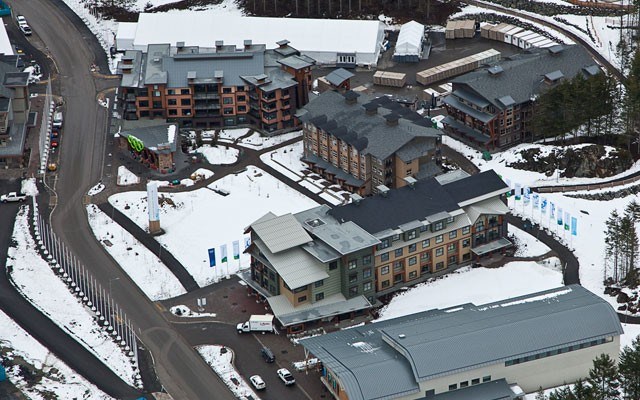If all goes according to plan, all but $2 million will be paid off on the $161 million Olympic athletes' village by 2017.
Even that small balance could be paid off, too, if the municipality really wants to retire all the debt.
"We don't think that's prudent," said Eric Martin, chair of the Whistler 2020 Development Corporation (WDC), which built the village for the 2010 Olympic and Paralympic Games.
That's the message he will bring to council in December when he gives an update of the WDC's financial picture and its strategic plan for the future.
The WDC now owes $12 million on the $15 million it borrowed from municipal reserves. It has long paid off the $100 million it borrowed from the Municipal Finance Authority through the sale of hundreds of employee housing units at the Cheakamus Crossing neighbourhood.
Martin said in the next few years, the WDC expects to pay off another $10 million with the outstanding parcels for sale in the neighbourhood.
That doesn't include however, the 40-acre site in the upper reaches of the development — land that the WDC has serviced but not yet developed.
That's the land that could be used to pay the balance owed to reserves, roughly $2 million.
Martin said the land has an assessed value of between $3.5 million to $4 million. It's private and flat, with great views.
"It could be anything," said Martin.
And while selling it off wholesale could retire the WDC's Olympic debt once and for all with money left over, Martin is suggesting Whistler take a longer-term view.
"It could be worth a lot more," he said.
He will be bringing his recommendations to council by the end of the year.
Last week council approved a new reserves policy; a guideline to be used in determining how much money should be saved every year.
The reserves balance is at the highest it's been in recent years from $55 million in 2011 to $76 million in 2013.
That money is set aside to pay for Whistler's aging infrastructure.
One of the reasons Martin is recommending Whistler sit on the land for the time being is because it doesn't need the money for anything else at this point.
He added: "If they did, our approach might be different."




